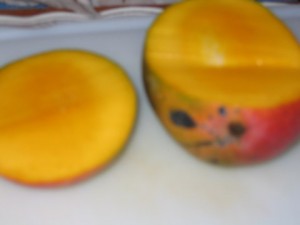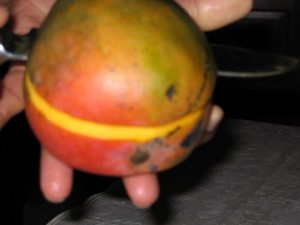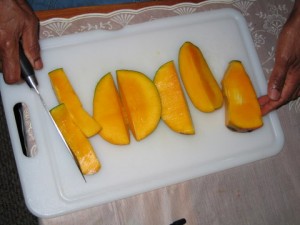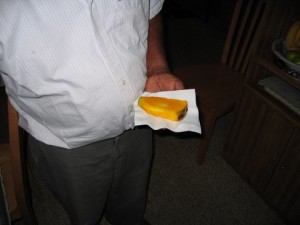Review: “We The Living,†Ayn Rand (Book 34 of 100)
WE THE LIVING is a great and interesting novel—though to be frank, I wouldn’t necessarily place it on the all-time top 100 book list. My suspicion is that it landed on this list much the same way that 12 Charles de Lint novels did, or 4 L. Ron Hubbards: in a word, “obsession.†There is such a cult-following surrounding the works of Ayn Rand that label anything she’s ever produced as worthy of unquestioned acclaim. Admittedly, I have immensely enjoyed a few of her other works, particularly “The Fountainhead,” a book I read in High School—though not for any class.
How did it happen—my reading that novel? (What’s that? You didn’t ask? Pardon the rhetorical, it serves as a segue for my sharing.) Maybe 10 years ago, in a physics class, a girl named Jessica had said something to a group of people that I happened to overhear. She and a few of her dorky friends that were all in the same “AP English†class were commiserating together—and out loud of course. To be sure, they were a tedious pretentious posse of privileged, pretty girls: sometimes obsequious, sometimes sycophantic, but always hard to ignore. Jessica, the more gregarious alpha-prig of the group had dropped the mention of this novel to my ears for the first time, “The Fountainhead.†Of course, this wasn’t nearly enough persuasion to pick up the strange book for myself, but I remember to this day something she had said soon after that motivated me toward it. What she said was that her older sister had read the book before, and had claimed, “It changed her life.†What an assertion! My interest was immediately piqued. How a fiction novel can change someone’s life, this I had to see for myself. I immediately purloined a copy and dug right in.
After reading, “The Fountainhead,” I actually had to admit it: I think the book did change my life. It is a silly story, with frankly a dull plot, and often very unrealistic dialogue and circumstances, however, there is something laced within the pulp that may adjust your view on certain things. What those certain things are, I haven’t the slightest idea—which I realize is very unhelpful. But, that book, for certain, I really do recommend. Although, I suspect that that same profound effect the book had on me then, was probably augmented by my having still been in High School. Whether it would have a similar affect now—assuming I had never read it—I cannot say for certain, but I’m very willing to doubt it.
Having said that, and now realizing that I’ve said very little about my topic book, “We The Living,†I hope I’ve at least set the background to the extratextual associations surrounding the works of Ayn Rand in many lives, as well as my own, and also in large part to why her books are so sanctimoniously revered—regardless of their literary merit.
“We The Living†was Ayn Rand’s first novel, and like her later works, contains a layer on top of the narrative—best described only as spiritual—that is less substantial and often unrealistic—or perhaps, just Russian. The characters bleed emotion, and are incredibly complex. They engage in philosophical transcendental musings and acts that truly take place nowhere aside from the closed sphere of printed matter. One thing for certain, the book does offer an excellent first-person glimpse into the specifics of communist Russia during the 1920s. You can hear the shouts at the picket rallies, the windy dogmatic speeches bellowing in repetitive ideology to a receptive, though desperately starving, and utterly impoverished proletariat. But, and more closer-to-home, you can see what it’s like to not have a ration card, and try in earnest to support an ailing family. To see your wife cough-out blood and die on a bed, after being refused at a hospital for less-than-perfect party alliances. It is often, a very sad story. If I say more, I would risk ruining it for any that might want to read it.
To describe in brief the general plot, it is about a woman,– a young girl at first–Kira Argnovask-too-long-to-remember, as she grows up in an environment that is completely changing, mostly, if not all, for the worse. But instead of becoming consumed by the exerternalities outside of her control, and falling-in, capitulating, she does what she can to keep her sense of self from being conquered.
As you can see, it is hard for me to describe this book without wading into the metaphysical. In short, I will say that I enjoyed “We The Living.†It wasn’t as fast moving as some other books that I’ve read, and as such, was a bit harder to get into. However, the novel is incredibly complex—one can probably develop an entire course around the book. And I’m sure, I haven’t given this book nearly the credit it deserves. It would probably take me a few more gray hairs, and years under my eyes, and certainly a few more readings, to begin to approach that. But, if you are looking for something deep; if Anna Karenina is your favorite novel; if you have Ayn Rand posters in your bedroom, and an “I’m with Ayn” bumper-sticker on your ’87 Bug, then this book is certainly for you.









